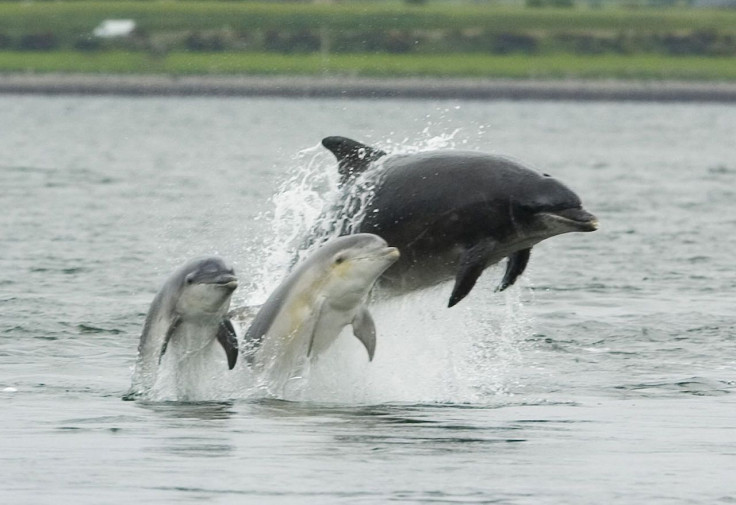Albino Dolphin Off Florida Coast Is A Rare Sight, But Conservationists Say Stay Away [VIDEO]

An albino dolphin was recently spotted off the Atlantic coast of Florida, a rare sighting that has sparked curiosity across the Internet but has conservationists worried about the dolphin’s safety. Video of the unusual bottlenose dolphin was uploaded to YouTube by the Florida Fish and Wildlife Conservation Commission, or FWC, and shows the dolphin breaking the surface of the water several times not far from shore.
"We thought [the video] was worth sharing due to their rarity, but we are not able to give out an exact location for the sake of the animal's safety," Brandon Basino, a spokesman with the Fish and Wildlife Research Institute in St. Petersburg, Florida, told Florida Today. "We did not ask for a specific location for this very reason." The footage was shot by FWC volunteer Danielle Carter in December 2014.
Since 1962, the National Oceanic and Atmospheric Administration has logged only 14 other albino dolphin sightings. Overall, scientists have observed some 20 species of whales, dolphins and porpoises that exhibit albinism. However, spotting a white marine animal in the wild remains uncommon.
Albinism in humans is a condition in which there is little or no pigment in the skin, eyes and hair, according to Scientific American. The genetic mutation affects a pigment called melanin.
Albinism can theoretically occur in almost all mammals, as the cells that control pigmentation are the same as those in humans. However, very little is known about albino animals because of their rarity.
Whether albino dolphins are disadvantaged in the wild because of their coloring is unclear, scientists said. "I don't believe we have enough clinical information to indicate if they are 'healthy,’ ” veterinary pathologist Greg Bossart told the New Hampshire Voice. He said if anything, albinism in wild animals could make them more vulnerable to predators “for obvious reasons.”
© Copyright IBTimes 2025. All rights reserved.






















